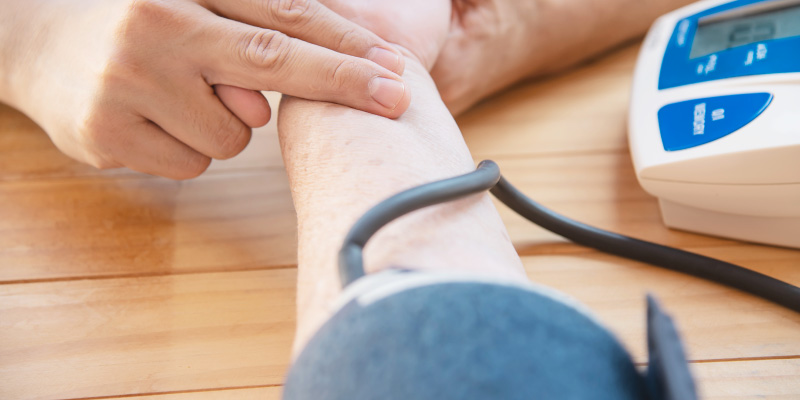Rheumatic Heart Disease or RHD is a disorder in which permanent damage is caused to heart valves by rheumatic fever. In this disease, the heart valve is damaged by an under-treated or untreated streptococcal infection like scarlet fever or strep throat, caused by bacteria called Streptococcus. An immune response leads to an inflammatory situation in the body which can cause on-going valve damage.
Chronic Rheumatic Heart Disease is caused by repeated inflammation through a fibrinous repair. The changes in cardinal anatomic of the valve incorporate commissural fusion, leaflet thickening, and thickening and shortening of the tendinous cords. This is caused due to autoimmune reaction to Group A β-hemolytic streptococci which causes valvular damage. Scarring and fibrosis of valve leaflets, cusps, and commissures lead to irregularities that can result in valve regurgitation or stenosis.
Normally during childhood, the inflammation caused by rheumatic fever is known as rheumatic valvulitis. Approximately half of the patients suffering from rheumatic fever develop inflammation together with valvular endothelium.
The majority of mortality and morbidity due to rheumatic fever is induced by its destructive impacts on cardiac valve tissue. The pathogenesis of Rheumatic Heart Disease is complicated. It involves genetic predisposition and molecular mimicry that lead to autoimmune reactions.
Some Common Facts about Rheumatic Heart Disease
- In Rheumatic Heart Disease, permanent damage is caused to heart valves by rheumatic fever.
- It is commonly abbreviated as RHD.
- In Rheumatic Heart Disease, the heart valve is damaged by an under-treated or untreated streptococcal infection like scarlet fever or strep throat, caused by bacteria called Streptococcus.
- Rheumatic Heart Disease is caused by repeated inflammation through a fibrinous repair.
- The pathogenesis of Rheumatic Heart Disease is complicated.
- It includes genetic predisposition and molecular mimicry that lead to autoimmune reactions.
- The inflammation caused due to rheumatic fever can last for a few weeks to several months.
- Untreated RHD can cause heart failure.
- The inflammation can cause long-term difficulties and complications.
- Rheumatic Heart Disease is a very common heart disorder in youths.
- Rheumatic Heart Disease normally occurs after 10-20 years of the initial illness.
- Not everyone with rheumatic fever develops Rheumatic Heart Disease.
- Some heart problems associated with Rheumatic Heart Disease are endocarditis, valvular heart disease, heart block, and pericarditis.
- RHD is very common in Central and South Asia, the Middle East, Africa, the South Pacific, and poverty-stricken areas of developed nations.
- According to WHO, Rheumatic Heart Disease is a significant determinant of cardiovascular disorders in today’s world.
- According to the survey of the New England Journal of Medicine, there were approximately 319,400 deaths caused due to RHD in 2015.
Causes of Rheumatic Heart Disease
RHD is caused by rheumatic fever, which is an inflammatory disorder that affects various connective tissues, especially in the skin, joints, brain, or heart. This can lead the heart valves to be inflamed and grow scarred with time, resulting in the leaking or narrowing of the heart valve, making it more difficult for the heart to work properly. It normally takes years to develop but can lead to heart failure if left untreated.
Symptoms of Rheumatic Heart Disease

The signs and symptoms of Rheumatic Heart Disease may not be noticed for several years and when developed, the symptoms normally depend on the heart valves which are affected, and the severity of the damage. The signs and symptoms of moderate to severe RHD include:
- Chest pain
- Weakness
- Swelling in the face and legs
- Breathlessness
- Heart palpitations
- Orthopnoea
- Paroxysmal nocturnal dyspnoea
- Syncope or fainting
- Edema or swelling
- Fever due to the infection of damaged heart valves
- Stroke
Signs and symptoms caused due to rheumatic fever which result from inflammation in the skin, joints, heart, or central nervous system include:
- Painful and tender joints mostly in the ankles, elbows, knees, and wrists
- Fever
- Swollen joints
- Pain in one joint that transfers to another joint
- Chest pain
- Lumps
- Heart murmur
- Fatigue
- Shortness of breath
- Erythema marginatum
- Sydenham chorea
The symptoms of Rheumatic Heart Disease caused due to heart valve disorder include:
- Chest pain
- Heart palpitations
- Shortness of breath
- Fatigue
- Weakness
- Dizziness
- Light-headedness
- Swelling of the ankles, feet, or stomach
Diagnosis of Rheumatic Heart Disease

People suffering from RHD will possess or currently possess a strep infection. A blood test or throat culture may be done to check for strep. The person may also have a murmur or rub that may be detected during a routine physical examination. The murmur is caused due to the blood leaking near the damaged valve and the rub is induced when the inflamed heart tissues rub or move against each other.
Some of the tests practiced to diagnose RHD may include:
- Echocardiogram: In this test, sound waves are used to check the heart’s valves and chambers. The echo sound waves form a picture on the screen that shows damage to the valve flaps, fluid around the heart, backflow of blood due to a leaky valve, and heart enlargement.
- Electrocardiogram: ECG records the timing and strength of the heart’s electrical activity. The test shows arrhythmias or dysrhythmias. It can also find heart muscle damage.
- Chest X-ray: An X-ray is done to check the lungs and see if the heart is enlarged.
- Cardiac MRI: This test takes detailed pictures of the heart to get a more accurate look at the heart muscle and heart valves.
- Blood tests: Blood tests may be conducted to look for inflammation and infection.
Conclusion
Rheumatic Heart Disease is associated with damage to the heart valves by rheumatic fever, which is an inflammatory disease, triggered by a streptococcal bacterial infection. Consult a doctor because if left untreated, RHD can cause heart failure.




